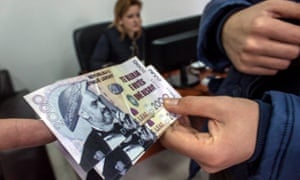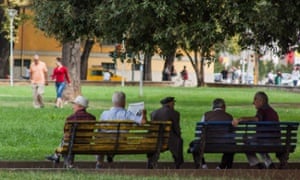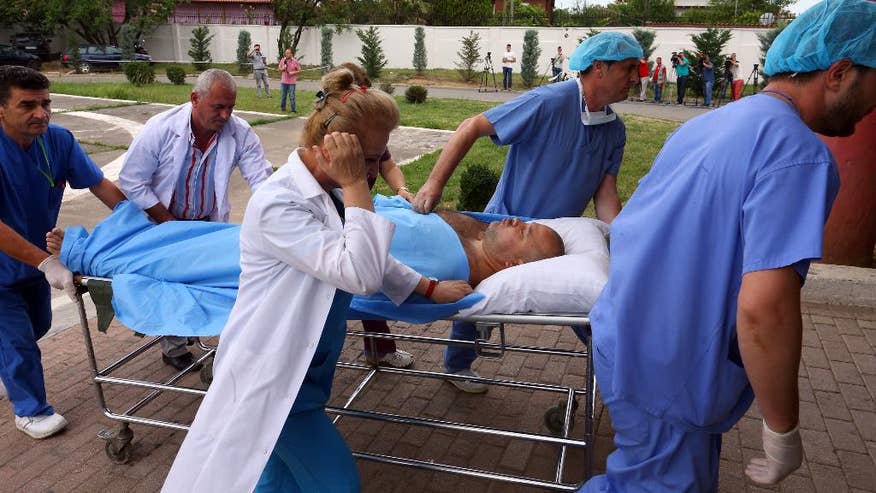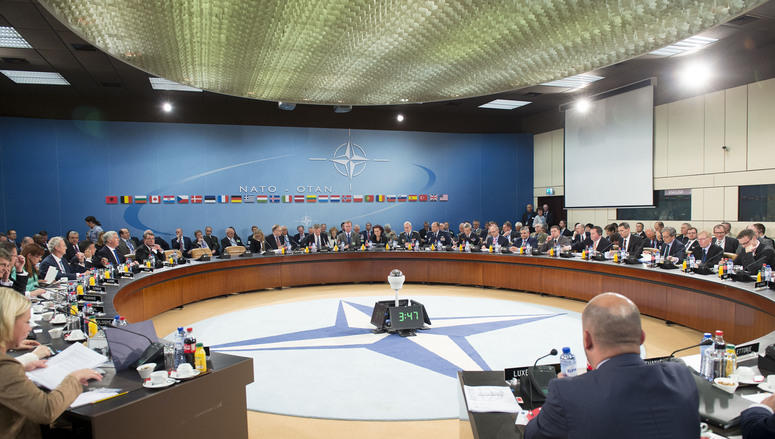www.valuewalk.com
Tensions continues to ramp up between Russia and the United States, as geopolitical manoeuvers unfold. The uneasy peace between the Eastern and Western superpowers seems to be deteriorating further, with both sides taking action which has resulted in distrust increasing further.
Putin increases nuclear warhead haul
Just last week, the Russian supremo Vladimir Putin announced that Russia intended to expand its existing nuclear arsenal. This move would see the nation establishing forty new intercontinental ballistic missiles to add to its existing quota. Considering that Russia and the United States collectively have in the region of 15,000 nuclear warheads, one might not unreasonably wonder what is the point of Russia acquiring another forty. There is no doubt that should the United States or Russia ever fire a nuclear weapon at one another, the ultimate result would be unprecedented and unimaginable global devastation.Unfortunately, both Russia and the United States have engaged in actions in recent months which have resulted in the diplomatic situation between the two nations deteriorating. The latest increase in nuclear weapons announced by Russia seems to have led to a new phase of posturing and military manoeuvres, which is the latest in a phase of rising tensions that began with the Ukraine conflict back in 2013.
Geopolitical conflict
As has been reported previously by ValueWalk, the existing situation must be seen in the slightly geopolitical context. Russia and the US are historical rivals anyway, but the pairing of Russia with China in the new BRICS power bloc places pressure on the traditional US-led hierarchy. The old world order of the Anglo-American and EU / NATO-driven institutions is being challenged by the BRICS, and the powerful organization has already made it a stated goal to play a greater role in existing economic institutions, or if this is not achievable to set up a central bank of its own.ValueWalk reported sometime ago that the BRICS nations have been scheming to create their own central bank, as the major political and business figures from the Eastern world continue to be frozen out of the existing global economic infrastructure. Whether this is a serious intention, or rather a bargaining chip in an ongoing debate and struggle, remains to be seen. But what is certain is that the existing tension between the United States and Russia should be seen as a symptom of this situation.
Russia’s replacement strategy
According to Adam Mount, a Stanton Nuclear Security Fellow at the Council on Foreign Relations, the announcement which has recently been made by Putin does not actually signifying a significant change in Russian nuclear policy. Mount suggests that Russia is fully compliant with the New START treaty, which limits strategic launches such as ICBMs.Russia’s existing nuclear capability is indeed dating owing to its Soviet-Europe vintage. Russia must continue to take delivery of forty new weapons every year simply to replicate the existing capability. This is essentially the explanation for the extra warheads which have been ordered by the Russian president, and doesn't really represent an increase in the nation's nuclear capabilities.
NATO responds in kind
NATO has also taken explicitly aggressive steps of its own, by beefing up its Response Force. There are already thousands of soldiers and advanced military technology and weaponry stationed near Russia's borders in response to the Ukrainian situation, and this fighting force has recently been further increased. It already consists of 13,000 troops, but according to reports that emerged this week, NATO may now increase this to as much as 40,000.NATO Secretary-General Jens Stoltenberg has specifically stated that the move isn't intended to increase tensions, and NATO’s official policy is to seek neither confrontation nor a new arms race.
Naturally, Russia has been criticized for its policy in the Ukraine, but it is also notable that the United States and its allies have destabilized this relationship and region by directly supporting the overthrow of the Ukrainian government. The subsequent encircling of the nation with a large quotient of military force was only likely to ramp up tensions further.
And despite what has been stated about NATO's intentions by the organization itself, it seems that the military alliance that it represents is absolutely prepared to implement a more aggressive nuclear weapons strategy. NATO considers this to be a response to Russian aggression rather than a pre-emptive policy, but this will only serve to diminish the diplomatic relations between the Western and Eastern superpowers.
Nuclear response reported
It was reported again by The World Socialist Website that NATO is even planning to respond to any attempt by Russia to counter the United States with an even more aggressive military strategy. This could even include nuclear weapons.While this is an extremely alarming prospect, and the continuing tensions between Russia and the United States are worrying, it is also important to understand the historical context of this conflict. While no-one wants to believe that either side is capable of utilizing nuclear weapons, as ValueWalk as reported previously, this in fact came incredibly close to occurring during the Cuban Missile Crisis.
As the two big beasts in world geopolitics continue to saber rattle, one can only hope that ultimately a peaceful solution is sort to these inevitable tensions. In the iconic 1997 publication “The Grand Chessboard: American Primacy and Its Geostrategic Imperatives”, Zbigniew Brzezinski outlined a shifting in the world order and power base which is unfolding before our very eyes now. Although Brzezinski is, not unreasonably, a reviled figure to many, it is notable that he didn't predict that it would end with armed conflict between Russia, China, the United States and the Western world.
With both power blocs continuing to behave with intransigence, one can only hope that this verdict turns out to be accurate.






















